MooseFS
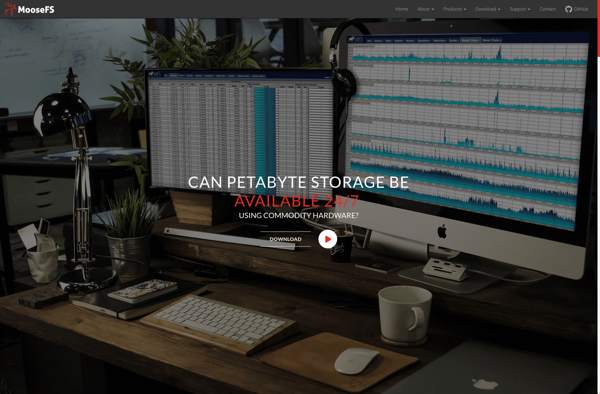
MooseFS: Open-Source Distributed File System
MooseFS is an open-source distributed file system designed for data-intensive tasks such as big data analytics, media streaming, and scientific simulations. It spreads data across multiple commodity servers for redundancy and performance.
What is MooseFS?
MooseFS is an open-source distributed file system optimized for storing very large data sets while providing high throughput access to the data. Unlike traditional file servers which store files on a single machine, MooseFS splits files into chunks and distributes them across multiple commodity servers. This allows it to scale easily and take advantage of the aggregated disk capacity, RAM, and processing power of many lower-cost machines.
Some key capabilities and use cases of MooseFS include:
- Scalable capacity and performance by spreading data across many servers
- Open-source software that runs on commodity Linux servers
- Cloud-native implementation makes it easy to deploy on premises or in the cloud
- Geographic replication for disaster recovery
- Frequently accessed files are cached in RAM to reduce disk IO
- Optimized for large video files, genomic data, imaging data and other unstructured data
- Compatible POSIX-like interface for ease of use
With its ability to cost-effectively store and manage massive data repositories, MooseFS can serve as a key building block for big data analytics, media services, content distribution networks and other data-driven applications.
MooseFS Features
Features
- Distributed architecture
- Scalable - add storage capacity by adding more servers
- Fault tolerant - replicates data across multiple servers
- POSIX compliant file system interface
- Support for commodity hardware
- Read/write caching for frequently accessed data
- Support for MapReduce style distributed computing
Pricing
- Open Source
Pros
Cons
Official Links
Reviews & Ratings
Login to ReviewThe Best MooseFS Alternatives
Top File Sharing and Distributed File Systems and other similar apps like MooseFS
OpenStack

Ceph
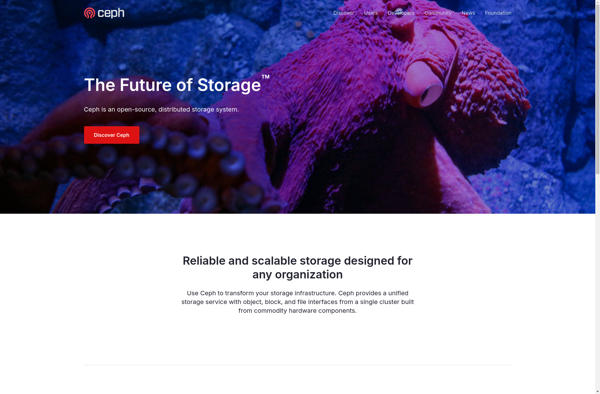
GlusterFS

XtreemFS

WekaFS

BeeGFS

Lustre

StorPool
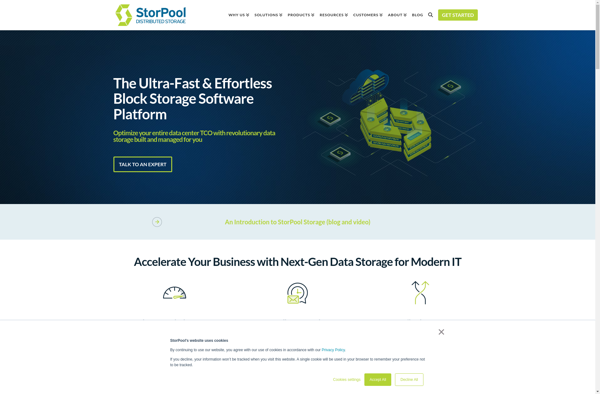
Seaweed FS
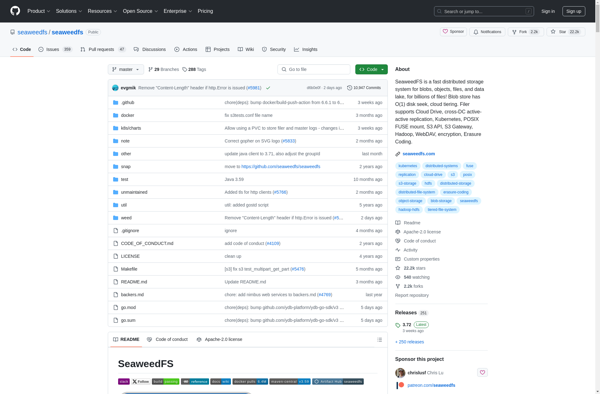
LizardFS
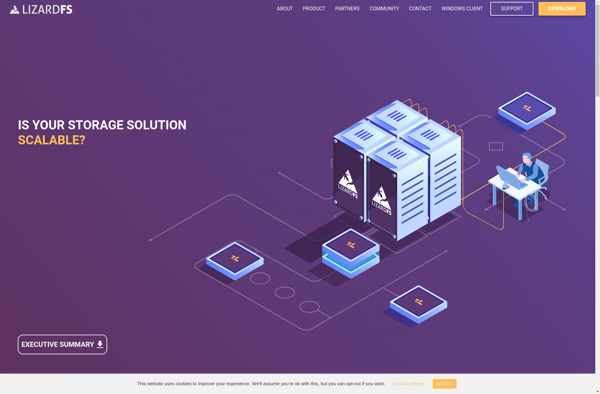
Quobyte
